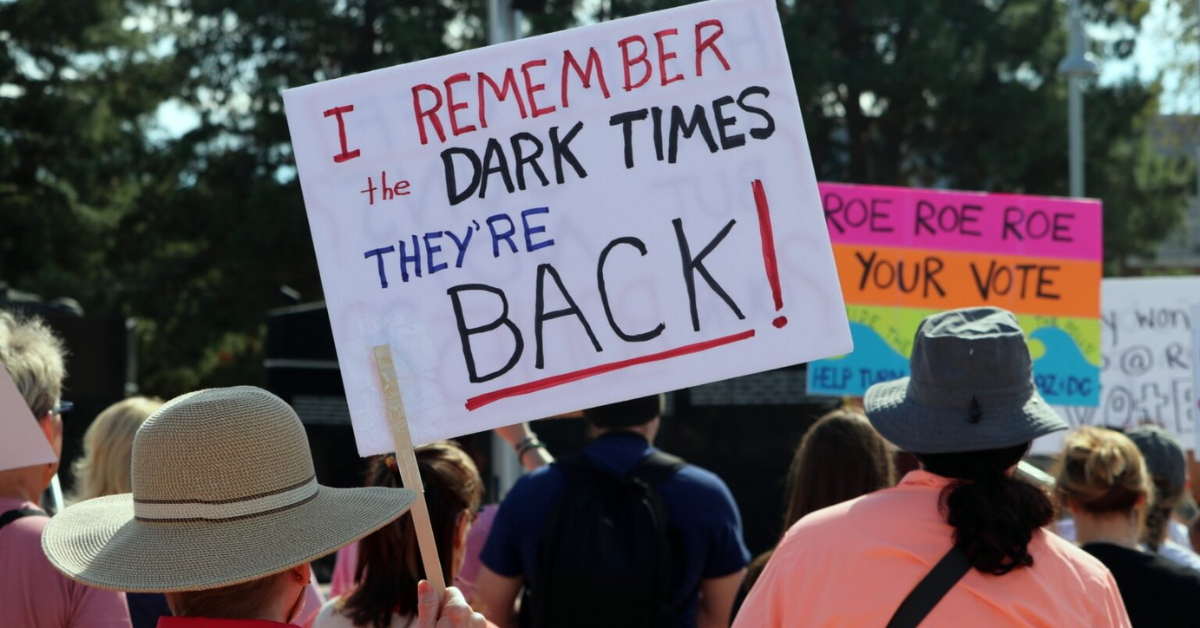Abortion remains out of reach for many women in Missouri, despite the passing of Amendment 3. Missouri stands among 41 states where abortion is restricted, and as a result, more women than ever are facing punishment because of their pregnancies. But while the legal landscape has shifted, the truth is that the real battle for reproductive rights continues — and for many, it’s a lot like the plot of Wicked.
Like many of us who cherish a good movie musical, we’ve become obsessed with Wicked. Its story of power, politics, and transformation resonates with the challenges of progressive politics in Missouri, especially when it comes to reproductive rights. We’ve been working tirelessly to fight for the future we believe in — one where our rights are not compromised. Yet, time and again, we find ourselves facing barriers from those we thought were on our side.
The world of Wicked, with its struggle for justice and change, is strikingly similar to the struggles faced in Missouri’s reproductive rights movement. We can’t help but see the story through the lens of a two-year election cycle, where we were outcast, shamed, and marginalized for pushing against the entrenched, outdated framework that the government and many organizations clung to — a framework that continues to let us down.
In our analogy, Glinda represents mainstream reproductive rights advocacy groups. These organizations, like Planned Parenthood and the ACLU, have immense platforms and significant funding. On the surface, they appear to be fighting for equality and justice, shining a light of hope for a better future. However, when we take a deeper look, we begin to see the cracks in their promises.

We want to believe in their cause, and we donate time and money to what we thought was a fight for change. But the reality is far from what we imagined. To truly challenge the status quo, we must face uncomfortable truths. The compromise they advocate for — trying to protect abortion rights while maintaining the old systems in place — only sustains the oppressive structures we’re fighting against.
This reality was starkly revealed during the 2024 election cycle when over $30 million was raised to pass Amendment 3, which was meant to be a rebrand of the now-defunct Roe v. Wade decision. While the intention seemed to be protection, in practice, it was just a political play that failed to provide real security for women’s rights. The promise of safe and unrestricted abortion access turned out to be empty.
For decades, Roe was touted as the law of the land, but it was never a true victory for reproductive justice. While it provided some legal framework, it left much to be desired. It allowed for state interference in pregnancy decisions, opening the door for surveillance, policing, and punishment for those seeking abortions. As time went on, Roe became a political tool, used by pro-choice advocates to claim victory while continuing to operate within a system that was fundamentally flawed.
The situation in Missouri is a reflection of this broader issue. Despite Amendment 3’s passage, abortion remains inaccessible for many. The promise that abortion rights could be protected, no matter who was in power, has proven unrealistic. For the first time in five election cycles, Missouri Democrats failed to win a single seat in the legislature, further weakening the force of Amendment 3. The situation remains dire.
A 'Wicked' reckoning in Missouri progressive politics • Missouri Independent https://t.co/yRd8GXX87Q
— Gregg Keller (@RGreggKeller) January 27, 2025
However, some leaders and organizations continue to hold on to the idea that everything is fine — they paint a rosy picture while ignoring the real issues at hand. This is where we must take a hard look at the choices we make and understand that true change requires challenging our own assumptions and the systems that keep us stagnant.
The road to reproductive justice is not an easy one, and it demands that we look within ourselves and our ecosystems to break free from the old ways of thinking. It’s not just about finding new leaders; it’s about changing the system entirely. As the Wicked musical reminds us, true change often requires letting go of old ideas and beliefs that no longer serve us.
Missouri’s reproductive justice movement is at a crossroads. We have seen the failures of Amendment 3, and we now know that compromise only maintains the status quo. The fight for true freedom and autonomy continues, and it is a fight that cannot be won by dividing ourselves. We must come together, united in our belief that reproductive rights are not up for negotiation.
We need leaders who are willing to risk political capital, leaders who understand that some issues must remain limitless: our autonomy over our own bodies, our right to make choices about our health, and the power to live without the threat of government interference. Real change demands this unwavering commitment to justice, and it will take all of us, working together, to make it happen.
In the end, it’s not just about changing laws — it’s about changing the culture and the very way we think about reproductive rights. We can no longer accept the limits imposed by the systems of power that have held us back for so long. It’s time to defy gravity, and together, there is no fight we cannot win.
Disclaimer: This article has been meticulously fact-checked by our team to ensure accuracy and uphold transparency. We strive to deliver trustworthy and dependable content to our readers.

